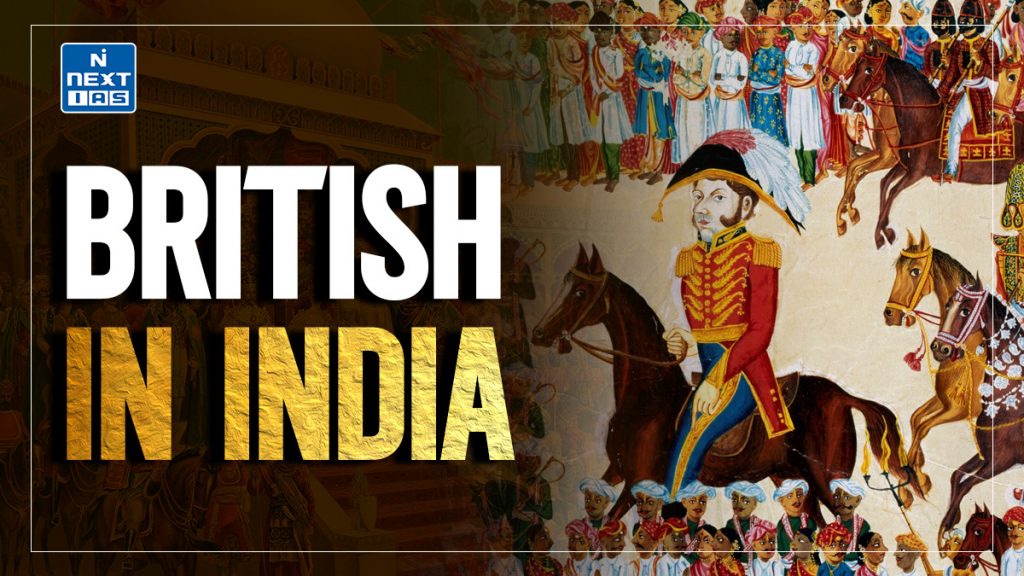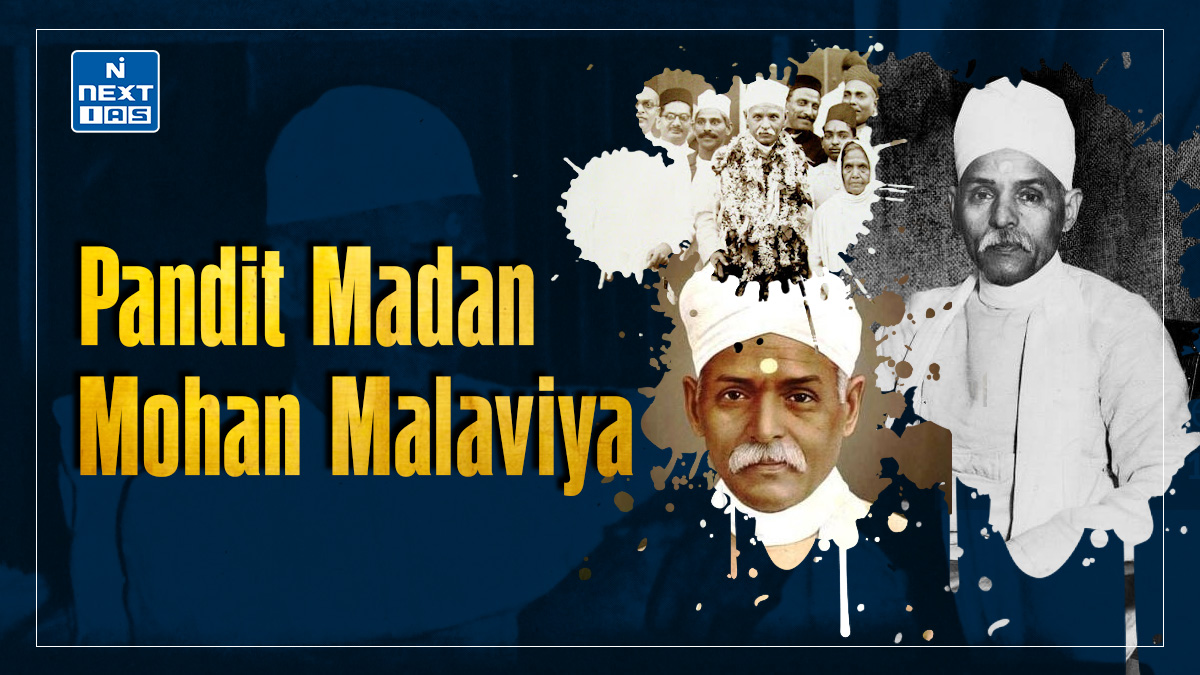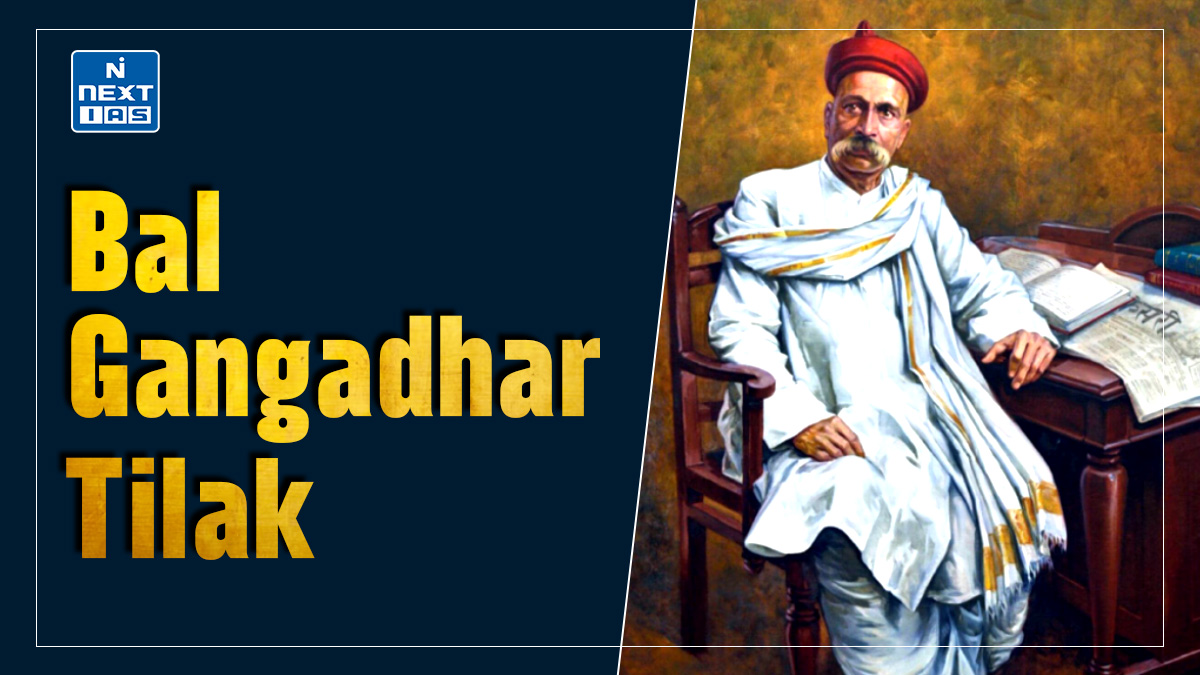
The British in India established a powerful colonial presence through the English East India Company, transforming the region’s political and economic landscape from the early 17th century onwards. Their dominance not only marked the decline of other European powers but also set the stage for establishing British colonial rule in India. This article aims to study in detail the rise, strategies, and eventual consolidation of British power in India, exploring the factors that contributed to their success.
About British in India
- The English East India Company (EEIC) was established in 1600 by a Royal Charter with an exclusive trading right east of the Cape of Good Hope.
- After seeing the returns on the first few voyages from India, the British wanted to establish factories in India.
- Captain William Hawkins was sent to Jahangir`s court to obtain permission to open a factory in Surat.
- The Portuguese stopped his attempts. In 1611, the British navy helped the Mughals defeat the Portuguese at Surat and gained the right to establish a factory there. After this, many factories, like Masulipatam, opened on the East Coast.
- In 1615, Sir Thomas Roe was sent as an ambassador to the Mughal court. He used his diplomatic skills to obtain a Royal Farman (decree) to open factories and trade in any part of the Mughal Empire.
- Factories were set up at Broach, Ahmadabad, and the factory at Surat was fortified. After negotiations with the local raja, the British EIC gained permission to set up a factory at Madras and fortify it.
- In 1661-62, King Charles II received Bombay as a dowry on marrying the Portuguese princess, Catherine of Braganza. It was transferred to the English EIC in 1668.
- In 1667, after successfully negotiating the exchange of the Dutch EIC’s Indian holdings with the British EIC’s Indonesian holdings, the British became a formidable force in India.
- In 1680, during Aurangzeb’s rule, the British EIC got a farman to trade customs-free throughout Mughal rule. After the Carnatic wars, the French aspirations ended, and India was left to be ruled by the British. What started as a trading company took India under its charge.
Reasons for Success of British East India Company
The British EIC was a late entrant in the race of European powers. They had their own set of challenges. The various reasons that helped the British EIC emerge as a clear winner among all the other European powers are as follows:
Political Reasons
- Political Freedom: One of the most important reasons for the success of British EIC was the tremendous amount of political freedom given to them by their government, which their peers did not have. They were allowed to raise armies, wage wars, fortify forts, and make treaties, making them virtually a government.
- Simple Organisation: The chief asset of the English East India Company was its simple organisation. Twenty-four directors were elected annually by the general court of shareholders.
- Use of Diplomacy: The English EIC appointed ambassadors to courts of Indian Rulers, e.g., the appointment of Sir Thomas Roe to the Mughal court, held it secure right to open factories and trade in any part of the Mughal Empire.
- Kingmakers: Though French commander Dupleix introduced this policy during the Carnatic wars of succession, the British EIC used it to their advantage to gain control of major ports and high-revenue-generating areas. Because of this policy, only the British EIC captured Bengal, which acted as the base for Indian colonisation.
- Aggressive Foreign Policy: The State was willing to colonise and wage wars for economic benefit. Unlike her rivals, it was willing to dedicate everything in her foreign policy to economic ends.
Economic Reasons
- Financial Security: Unlike the other companies, the British EIC was never starved of funds as the British government backed it. The British government was far better than its peers regarding internal conflicts and corrupt administrators.
- Privileges: The British EIC steadily spread its influence due to the privileges it received. The privileges enabled it to establish an increasing hold over the trade in indigo, silk, and cotton, among other commodities. They also reduced the cost of trade in India.
Social Reasons
- Non-interference in Society: Unlike the other companies, the British EIC tread cautiously and did not interfere in the country’s social affairs.
Technological Advancements
- Superior Navy: The British EIC had a far superior navy, which helped them carry cargo and won and protected their frontier against other colonial powers.
- Superiority in Art of War: The British EIC had more disciplined and professional fighting units. The British officials were also far more skilled in diplomacy and had won many wars before they were fought.
- Mechanised Military and Defence: The British EIC had the most sophisticated machinery. This, coupled with fortifying their establishments whenever they had the chance, made them invincible.
Geographic Advantage
- Strategic Presence: The British EIC had major strategic ports, which helped it control trade and conflicts with other companies during the period. The ports of Bombay, Madras, and Calcutta gave them a strategic advantage over the whole of India’s coastline.
Impact of British Rule in India
- Economic Impact: British rule transformed India’s economy into a colonial one.
- Indian industries, especially textiles, declined as the British imposed heavy duties on Indian goods while promoting British imports.
- The British developed India as a supplier of raw materials and a market for British goods, leading to deindustrialisation and a dependency on agriculture, which increased poverty among the masses.
- Agriculture and Land Revenue: The British introduced land revenue systems like the Permanent Settlement, Ryotwari, and Mahalwari systems, which fundamentally altered traditional agrarian relations.
- These systems often placed heavy tax burdens on farmers, leading to debt, displacement, and a shift towards cash crop cultivation, which made agriculture more vulnerable to market fluctuations and famine.
- Social and Cultural Impact: British policies impacted social customs and practices.
- They introduced Western education, which, while promoting English and modern scientific ideas, undermined local traditions and languages.
- The British also sought to end practices like sati and child marriage, influenced by Western reformist ideals. Western education helped create an educated Indian middle class that would later fuel the independence movement.
- Political Impact: The British established a centralised administrative system in India.
- They introduced modern legal and judicial systems and the concept of a civil service.
- Although primarily meant to consolidate British control, these systems gradually laid the foundation for political unity and governance in a large, diverse country.
- However, Indians were mostly excluded from higher posts, leading to growing resentment.
- Infrastructure Development: The British built railways, telegraphs, and postal services to facilitate administrative control and resource exploitation.
- The railway network, which became one of the world’s largest, also contributed to a sense of unity across Indian regions.
- Roads, ports, and canals were also developed, though often focused on benefiting British interests.
- Rise of Nationalism: British exploitation and policies spurred a growing nationalist sentiment in India.
- Exposure to Western ideas of democracy, liberty, and rights inspired educated Indians to question colonial rule.
- Organisations like the Indian National Congress (1885) were established, eventually spearheading the independence movement.
Conclusion
The British East India Company’s success in India was driven by a unique blend of political freedom, financial support, and military strength, setting it apart from other European powers. Its strategies in governance and non-interference in local customs helped establish dominance, ultimately paving the way for British colonial rule and the foundation of the British Raj.
Frequently Asked Questions (FAQs)
When did the British come to India?
The British first came to India in 1608 as traders through the East India Company, initially establishing a foothold in Surat.
How many years did the British rule India?
The British ruled India for nearly 200 years, from establishing the East India Company’s rule in 1757 (after the Battle of Plassey) until India’s independence in 1947.
How many years British rule in India?
British rule in India lasted for approximately 200 years.
When did British rule start in India?
British rule in India officially started after the Battle of Plassey in 1757, marking the beginning of the East India Company’s dominance over Indian territories.





